Last Updated on October 17, 2025 by Maika Cotton | Published: November 19, 2017
This blog post was originally posted on October 28, 2014, and was updated on November 19, 2017.
If there is one thing that’s true in this world, it’s that Catalans love their mushrooms.
Furthermore, these mushrooms play a huge role in the gastronomy of Barcelona and Catalonia. Every year, roughly between the months of September and December, people head to the forests like children in a candy store. Tirelessly scavenging for the horrendously ugly fungi that populate these parts. Officially speaking, the Catalans classify bolets, the general word for these earthy treats, into 26 different groups.
Mushroom Varieties
Just a few of the most commonly found and fiercely appreciated mushrooms in Catalonia include:
- rovelló (bloody milk cap)
- fredolic (grey knight)
- ou de reig (Caesar’s mushroom, though we like the Catalan name better—royal egg or King’s testicle)
- ceps (porcini)
- camagroc (yellow footed chanterelle)
- llanega (wax cap)
- tófona negre/trompete de la mort (black trumpet)
If some of these names already have you a bit freaked out (yes, trompete de la mort does mean death trumpet), just wait until you set eyes on the things. The markets’ fruit and vegetable stalls are fully stocked with what looks not like edible substances but rather something you might throw into a witch’s brew.
The rovellóns or the bloody milk caps in English, will be sure to catch your eye. They have a warm red and orange hues and speckled green flecks. Sounds poisonous, right? Well as it happens these are some of our favorite ones! Next up there’s the trompete de la mort, black trumpet variety. There was never a name so perfect, as its deep black color does, in fact, suggest death. Of course, xampinyons, or common mushrooms, are huge all throughout Spain. They are a major part of the gastronomy of Barcelona, which we are very happy about! They are usually sautéed with a bunch of garlic and parsley, they make for a simple and delicious tapa.
Gathering
Gathering mushrooms can be a fun and interesting thing to do while in Barcelona. There are plenty of meet-up groups which arrange trips to the beautiful Berguedà forests. This stunning area is a little over an hour’s journey from Barcelona.
Eating
If you can’t make it to the forest, worry not. The markets serve their purpose in bringing the forest to you. As mentioned earlier, the market stalls are stocked and the restaurants inside typically rely on whatever is in season that week. You can be sure to find an incredible black trumpet risotto or porcini carpaccio at the Cuines Santa Caterina (Avinguda de Francesc Cambó, 16) in the Santa Caterina Market of the Born.
Inside the Boqueria, grab a seat at Quim de la Boqueria’s tiny bar (La Rambla, 91). Let them awe you with dishes and sauces inspired by the different mushroom varieties. Then there’s Casa Lucio (Carrer del Viladomat, 59). This place is well-known throughout the city for their delicious fungi creations. The bar and restaurant in Sant Antoni has no official menu, which makes sense as it’s constantly changing. Trust their judgment and either snack on tapas at the bar, or head to the minuscule dining room for a more formal meal.

Celebrating
One of the best places to go to celebrate the Catalan mushroom is Olvá. This small town is located at the foothills of the Pyrenees and alongside the Llobregat river. This town is definitely winning in terms of mushroom enthusiasm. Furthermore, it not only holds a daily mushroom market but also different fairs, festival, and events throughout the fall. It should be noted that Olván is not easily connected via public transport.
Alternatively, in mid-November you can hit several birds with one stone at Gastropop Mushroom Festival in Poble Espanyol. Discover the magical world of mushrooms in Barcelona while also visiting Poble Espanyol, a very peculiar architectural museum in Montjuic.
Want our insider’s guide to eating in Barcelona? Just add your email address in the form below!
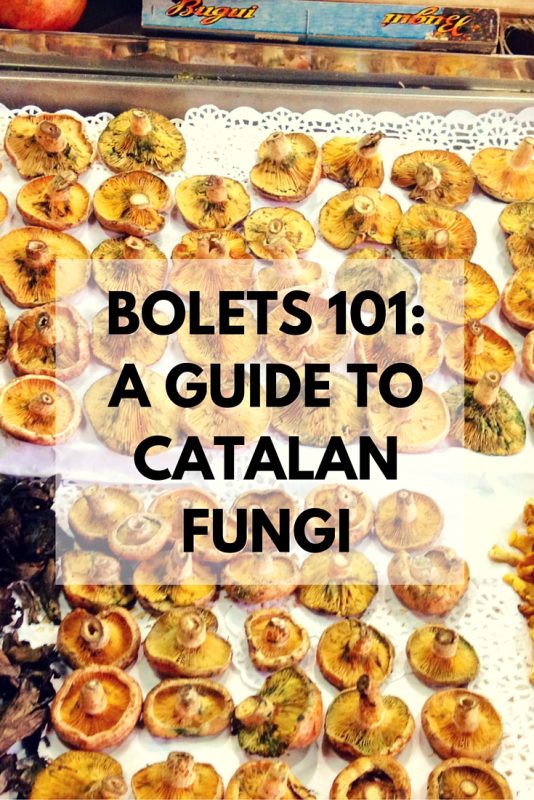
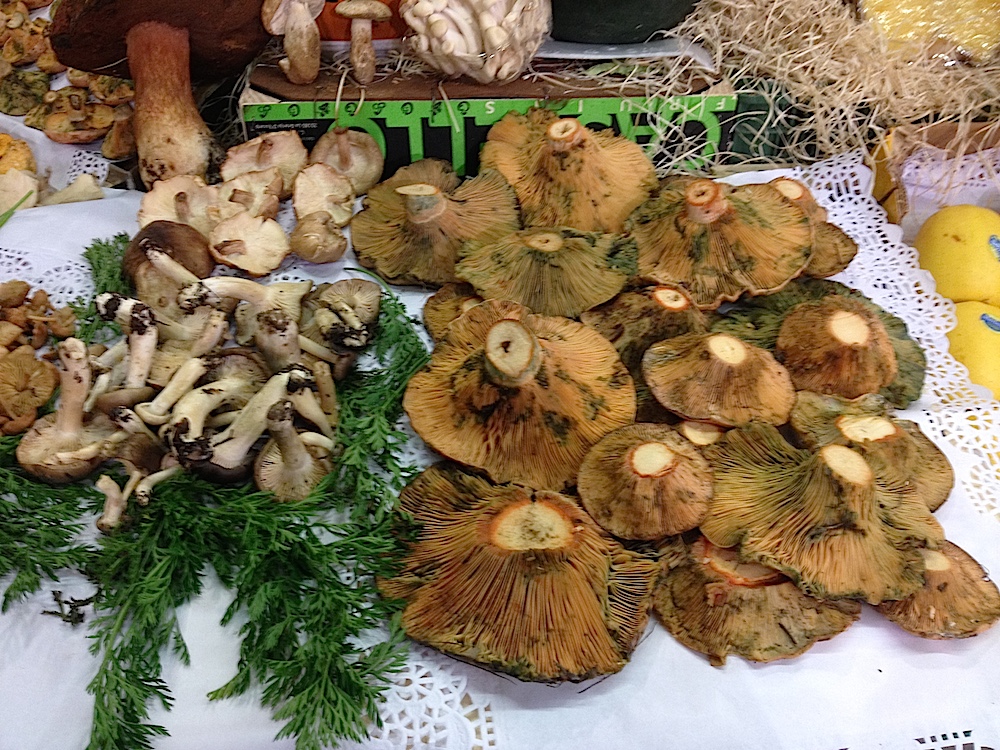
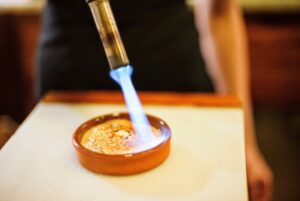
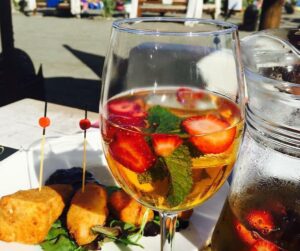
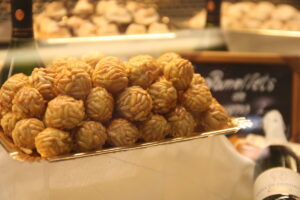






Enjoyed Rovellones a couple Octobers ago when I visited, looking forward to having them again.
They’re delicious! Will you be visiting Barcelona again soon?